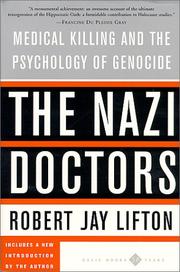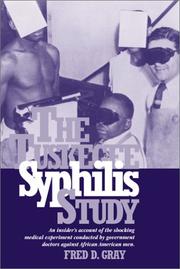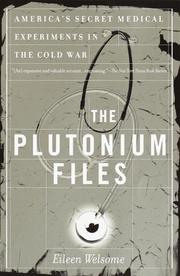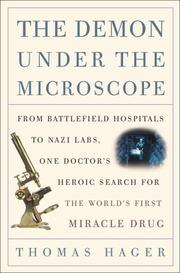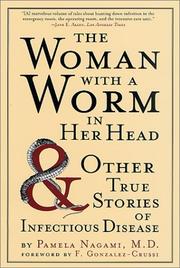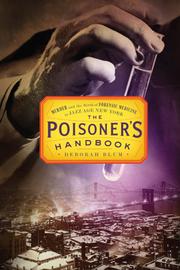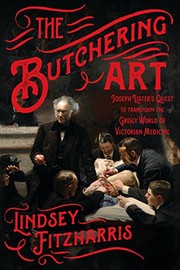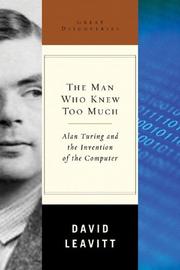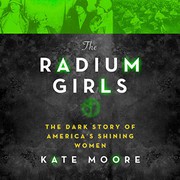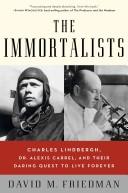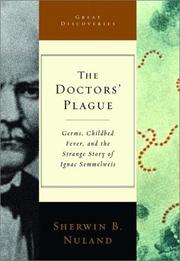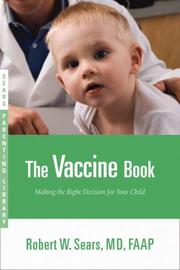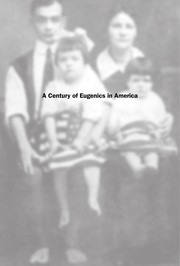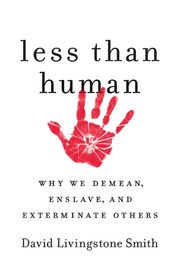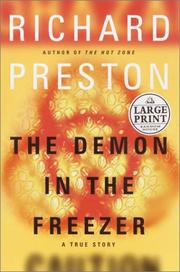Are you fascinated by the ethical quandaries and scientific discoveries that arise from human experimentation? Dive into the world of medical research, ethical dilemmas, and the human condition with these 20 best books about human experimentation. From historical accounts to fictional explorations, these books will challenge your perceptions and ignite your curiosity. Whether you’re a medical professional, a history buff, or simply intrigued by the complexities of human nature, there’s a book on human experimentation waiting to captivate you.
Contents
- 1 20 Best Books About Human Experimentation
- 2 The Immortal Life of Henrietta Lacks
- 3 The Nazi Doctors: Medical Killing and the Psychology of Genocide
- 4 The Tuskegee Syphilis Study: The Real Story and Beyond
- 5 The Plutonium Files: America’s Secret Medical Experiments in the Cold War
- 6 The Demon Under the Microscope: From Battlefield Hospitals to Nazi Labs, One Doctor’s Heroic Search for the World’s First Miracle Drug
- 7 The Woman with a Worm in Her Head: And Other True Stories of Infectious Disease
- 8 The Poisoner’s Handbook: Murder and the Birth of Forensic Medicine in Jazz Age New York
- 9 The Great Influenza: The Story of the Deadliest Pandemic in History
- 10 The Butchering Art: Joseph Lister’s Quest to Transform the Grisly World of Victorian Medicine
- 11 The Man Who Knew Too Much: Alan Turing and the Invention of the Computer
- 12 The Emperor of All Maladies: A Biography of Cancer
- 13 The Radium Girls: The Dark Story of America’s Shining Women
- 14 The Immortalists: Charles Lindbergh, Dr. Alexis Carrel, and Their Daring Quest to Live Forever
- 15 The Doctors’ Plague: Germs, Childbed Fever, and the Strange Story of Ignac Semmelweis
- 16 The Man Who Touched His Own Heart: True Tales of Science, Surgery, and Mystery
- 17 The Vaccine Book: Making the Right Decision for Your Child
- 18 The Gene: An Intimate History
- 19 A Century of Eugenics in America: From the Indiana Experiment to the Human Genome Era
- 20 Less Than Human: Why We Demean, Enslave, and Exterminate Others
- 21 The Demon in the Freezer: A True Story
- 22 Conclusion
- 23
- 24 Discover the Best The Clintons Books in the 2024 Updated Edition
- 25 Books about Yugoslav Wars: 2024's Best Titles
- 26 Books about Thinking: 2024's Best Titles
20 Best Books About Human Experimentation
The Immortal Life of Henrietta Lacks
by Rebecca Skloot
The Immortal Life of Henrietta Lacks by Rebecca Skloot is a captivating non-fiction book that delves into the ethical and scientific implications of human experimentation. The book tells the story of Henrietta Lacks, a woman whose cells were unknowingly taken for research in the 1950s, leading to groundbreaking medical discoveries. Skloot explores the impact of this on Lacks’ family and raises important questions about consent, privacy, and the treatment of marginalized communities in medical research. This thought-provoking book sheds light on the complex and often controversial world of human experimentation, and its far-reaching effects on individuals and society as a whole. The Immortal Life of Henrietta Lacks is a must-read for anyone interested in the intersection of science, ethics, and human rights.
The Nazi Doctors: Medical Killing and the Psychology of Genocide
by Robert Jay Lifton
The Nazi Doctors: Medical Killing and the Psychology of Genocide by Robert Jay Lifton is a chilling exploration of the moral and psychological implications of the medical atrocities committed by Nazi doctors during World War II. Lifton delves into the disturbing realm of human experimentation, examining the motivations and rationalizations that allowed these medical professionals to participate in such heinous acts. Through extensive research and interviews with surviving doctors and victims, Lifton provides a harrowing account of the ethical erosion and psychological manipulation that enabled the genocide to occur. This book about human experimentation serves as a sobering reminder of the dangers of unchecked power and the potential for evil within the medical profession. It is a crucial read for anyone seeking to understand the depths of human depravity and the enduring impact of the Holocaust.
The Tuskegee Syphilis Study: The Real Story and Beyond
by Fred D. Gray
The Tuskegee Syphilis Study: The Real Story and Beyond by Fred D. Gray is a groundbreaking book on human experimentation that dives into the infamous study conducted by the U.S. Public Health Service. Gray, an attorney who represented the participants in the study, provides a compelling account of the unethical and inhumane treatment of African American men who were deliberately left untreated for syphilis. Through meticulous research and firsthand knowledge, Gray exposes the true extent of the study’s impact on the participants and their families. He also delves into the legal and ethical implications of the study, shedding light on the broader issues of racism, medical ethics, and government accountability. This human experimentation book is a powerful and thought-provoking exploration of a dark chapter in medical history, and a call to action for the protection of human rights in research.
The Plutonium Files: America’s Secret Medical Experiments in the Cold War
by Eileen Welsome
The Plutonium Files: America’s Secret Medical Experiments in the Cold War by Eileen Welsome is a gripping book about human experimentation that delves into a shocking chapter of American history. Welsome uncovers the clandestine experiments conducted by the US government during the Cold War, in which unsuspecting citizens were exposed to deadly plutonium without their knowledge or consent. Through meticulous research and compelling storytelling, Welsome reveals the harrowing accounts of the individuals who were used as human guinea pigs in the name of national security. This book on human experimentation sheds light on the ethical and moral implications of scientific research and raises important questions about the balance between scientific advancement and human rights. The Plutonium Files is a thought-provoking and haunting exploration of a dark and disturbing period in American history.
The Demon Under the Microscope: From Battlefield Hospitals to Nazi Labs, One Doctor’s Heroic Search for the World’s First Miracle Drug
by Thomas Hager
The Demon Under the Microscope by Thomas Hager is a gripping narrative that delves into the history of the world’s first miracle drug, penicillin. This book takes readers on a journey from the battlefield hospitals of World War I to the Nazi labs of World War II as one doctor embarks on a heroic search for a cure. Hager’s vivid storytelling brings to life the challenges and triumphs of medical breakthroughs, shining a light on the ethical dilemmas and human experimentation that accompanied the quest for a lifesaving medication. Through meticulous research and compelling prose, Hager paints a fascinating portrait of the scientists, doctors, and patients involved in the development of penicillin, offering a thought-provoking exploration of the complex intersection of science, medicine, and morality.
The Woman with a Worm in Her Head: And Other True Stories of Infectious Disease
by Pamela Nagami
The Woman with a Worm in Her Head: And Other True Stories of Infectious Disease by Pamela Nagami is a fascinating exploration of the world of infectious diseases. Through a series of gripping and often shocking true stories, Nagami takes readers on a journey through the world of medical mysteries, epidemics, and the human body’s battle against deadly pathogens. From a woman with a tapeworm living in her brain to a teenager with a rare and deadly virus, Nagami’s accounts are both chilling and deeply compelling. This book offers a unique and eye-opening look at the complex and often terrifying world of infectious diseases, shedding light on the ways in which these microscopic invaders can wreak havoc on the human body. If you’re interested in a book about human experimentation, medical mysteries, and the fascinating world of infectious diseases, this book is a must-read.
The Poisoner’s Handbook: Murder and the Birth of Forensic Medicine in Jazz Age New York
by Deborah Blum
The Poisoner’s Handbook: Murder and the Birth of Forensic Medicine in Jazz Age New York by Deborah Blum is a captivating blend of history, science, and true crime. The book delves into the fascinating world of forensic medicine during the 1920s, a time when New York City was plagued by a surge in poison-related deaths. Blum’s narrative follows the pioneering work of medical examiner Charles Norris and toxicologist Alexander Gettler as they revolutionize the field of forensic science, using cutting-edge techniques to catch murderers who had previously evaded justice. This gripping account offers a chilling glimpse into the dark side of the Jazz Age, showcasing the deadly concoctions and covert killings that plagued the era. The Poisoner’s Handbook is a must-read for anyone with an interest in true crime, history, or the rise of forensic science.
The Great Influenza: The Story of the Deadliest Pandemic in History
by John M. Barry
The Great Influenza: The Story of the Deadliest Pandemic in History by John M. Barry is a gripping account of the 1918 influenza pandemic that killed millions of people worldwide. Barry delves into the scientific, political, and social aspects of the pandemic, offering a comprehensive exploration of the disease’s origins, spread, and impact on society. Through meticulous research and vivid storytelling, the author paints a vivid picture of the devastating consequences of the outbreak and the heroic efforts of medical professionals to combat the virus. This book is a fascinating and sobering look at the intersection of science, politics, and public health in the face of a global crisis. It is a must-read for anyone interested in the history of pandemics and the resilience of the human spirit in the face of adversity.
The Butchering Art: Joseph Lister’s Quest to Transform the Grisly World of Victorian Medicine
by Lindsey Fitzharris
The Butchering Art: Joseph Lister’s Quest to Transform the Grisly World of Victorian Medicine by Lindsey Fitzharris is a captivating exploration of the gruesome world of 19th-century surgery and Joseph Lister’s groundbreaking efforts to revolutionize the field. Fitzharris delves into the horrors of pre-Listerian surgery, where infection and death were rampant, and Lister’s pioneering use of antiseptic techniques to improve patient outcomes. The book vividly depicts the brutal realities of Victorian medicine, from the lack of hygiene in operating theaters to the high mortality rates of patients. It also sheds light on Lister’s struggles to convince the medical establishment of the importance of his methods. The Butchering Art is a compelling blend of medical history, biography, and true crime that will fascinate readers interested in the history of surgery and the quest for medical advancement.
The Man Who Knew Too Much: Alan Turing and the Invention of the Computer
by David Leavitt
The Man Who Knew Too Much: Alan Turing and the Invention of the Computer by David Leavitt is a captivating exploration of the life and work of the brilliant mathematician and codebreaker, Alan Turing. Leavitt delves into Turing’s groundbreaking contributions to the development of the computer and his pivotal role in breaking the Enigma code during World War II. The book provides a richly detailed portrait of Turing’s personal struggles as a gay man in a time when homosexuality was criminalized, and the tragic circumstances surrounding his untimely death. Leavitt skillfully weaves together the story of Turing’s scientific achievements and his personal life, offering a thought-provoking examination of the ethical implications of human experimentation and the impact of societal attitudes on individual lives. This human experimentation book is a compelling and informative read for anyone interested in the intersection of technology, history, and human experience.
The Emperor of All Maladies: A Biography of Cancer
by Siddhartha Mukherjee
The Emperor of All Maladies: A Biography of Cancer by Siddhartha Mukherjee is a captivating and insightful exploration of the history, science, and human impact of cancer. Mukherjee, a physician and researcher, delves into the complex and often devastating world of cancer, chronicling its origins, treatments, and the tireless efforts of scientists and doctors to understand and combat this formidable disease. Through compelling storytelling and meticulous research, the book takes readers on a journey through the centuries, from ancient times to modern breakthroughs, shedding light on the triumphs and tragedies in the ongoing battle against cancer. The Emperor of All Maladies is a must-read for anyone interested in the history of medicine, the human experience of illness, and the ongoing quest to conquer one of the most formidable adversaries of our time.
The Radium Girls: The Dark Story of America’s Shining Women
by Kate Moore
The Radium Girls: The Dark Story of America’s Shining Women by Kate Moore is a captivating and harrowing account of the young women who worked in radium dial factories during the early 20th century. This book delves into the shocking human experimentation that these women were unknowingly subjected to, as they painted watch dials with luminous radium paint. As the women fell ill with mysterious and devastating symptoms, they fought for justice in the face of powerful corporations. Moore’s vivid and compelling narrative brings to light the bravery and resilience of these forgotten women, while shedding light on the dark history of human experimentation in the workplace. This is a must-read for anyone interested in the intersection of science, ethics, and the fight for human rights.
The Immortalists: Charles Lindbergh, Dr. Alexis Carrel, and Their Daring Quest to Live Forever
by David M. Friedman
The Immortalists is a captivating nonfiction book that delves into the lives of Charles Lindbergh and Dr. Alexis Carrel as they embark on a daring quest to achieve immortality. The book explores their controversial and morally questionable experiments in an attempt to extend human life indefinitely, making it a fascinating read for anyone interested in the history of human experimentation. Author David M. Friedman provides a gripping and thought-provoking account of the duo’s relentless pursuit of immortality, shedding light on the ethical implications of their actions and the impact of their work on modern medicine and science. The Immortalists is a compelling exploration of the limits of human ambition and the ethical boundaries of scientific discovery, making it a must-read for anyone intrigued by the topic of extending human life.
The Doctors’ Plague: Germs, Childbed Fever, and the Strange Story of Ignac Semmelweis
by Sherwin B. Nuland
The Doctors’ Plague by Sherwin B. Nuland is a fascinating exploration of the history of medicine and the pioneering work of Ignac Semmelweis. Nuland delves into the devastating impact of childbed fever and the revolutionary discoveries made by Semmelweis in the mid-19th century. The book uncovers the resistance and skepticism Semmelweis faced from the medical establishment as he introduced the concept of handwashing to prevent the spread of germs. Nuland’s storytelling skillfully brings to life the challenges and triumphs of Semmelweis, shedding light on the complexities of medical innovation and the human cost of ignorance. This compelling account provides a thought-provoking reflection on the history of germs, childbed fever, and the ethical implications of medical practices, making it a must-read for anyone interested in the history of medicine and books on human experimentation.
The Man Who Touched His Own Heart: True Tales of Science, Surgery, and Mystery
by Rob Dunn
The Man Who Touched His Own Heart: True Tales of Science, Surgery, and Mystery by Rob Dunn is a fascinating exploration of the human heart and the history of medical advancements. Dunn takes readers on a captivating journey through the world of cardiology, sharing true stories of scientific breakthroughs, surgical innovations, and medical mysteries. This compelling book delves into the intricacies of the human heart, shedding light on the pioneering individuals who have pushed the boundaries of medical knowledge. With vivid storytelling and meticulous research, Dunn offers a unique perspective on the heart’s significance in human history. From ancient practices to modern technology, The Man Who Touched His Own Heart is an enthralling read that will appeal to anyone interested in the remarkable world of cardiology and the remarkable individuals who have dedicated their lives to understanding the human heart.
The Vaccine Book: Making the Right Decision for Your Child
by Robert W. Sears
The Vaccine Book: Making the Right Decision for Your Child by Robert W. Sears is a comprehensive guide for parents who want to make informed decisions about vaccinating their children. Dr. Sears provides a balanced and thorough discussion of the pros and cons of each vaccine, along with the latest research and recommendations. This book is not a pro or anti-vaccine manifesto, but rather a tool to help parents navigate the complex and often overwhelming world of vaccinations. With clear explanations and easy-to-understand language, Dr. Sears empowers parents to make the best choices for their children’s health. Whether you are a new parent or have concerns about vaccines, this book is a valuable resource for anyone seeking to understand the important topic of immunization.
The Gene: An Intimate History
by Siddhartha Mukherjee
The Gene: An Intimate History by Siddhartha Mukherjee is a captivating exploration of the intricate and often controversial world of genetics. Through a blend of personal stories, scientific research, and historical anecdotes, Mukherjee delves into the complexities of the gene and its profound impact on humanity. From the discovery of DNA to the ethical implications of genetic engineering, this book provides a thought-provoking look at the history and future of genetics. Mukherjee skillfully navigates through the scientific jargon to make this complex subject accessible and engaging for readers of all backgrounds. With its insightful examination of the role of genes in shaping our lives, The Gene is a must-read for anyone intrigued by the intricacies of human experimentation and the profound influence of genetics on our world.
A Century of Eugenics in America: From the Indiana Experiment to the Human Genome Era
by Paul A. Lombardo
A Century of Eugenics in America: From the Indiana Experiment to the Human Genome Era, written by Paul A. Lombardo, delves into the complex history of eugenics in America. This captivating book explores the controversial and often disturbing practices of the eugenics movement, from the infamous Indiana Experiment to the advancements in the Human Genome Era. Lombardo provides a comprehensive overview of the individuals and institutions involved in the eugenics movement, shedding light on the impact of eugenics on American society. Through meticulous research and engaging storytelling, the author offers a thought-provoking examination of the ethical and moral implications of human experimentation and genetic manipulation. A Century of Eugenics in America is a must-read for anyone interested in the history and consequences of eugenics, making it a valuable addition to the literature on human experimentation.
Less Than Human: Why We Demean, Enslave, and Exterminate Others
by David Livingstone Smith
Less Than Human: Why We Demean, Enslave, and Exterminate Others by David Livingstone Smith delves into the disturbing aspects of human nature that lead to the mistreatment of others. This thought-provoking book explores the psychological and historical roots of dehumanization, from the language we use to the atrocities of war and genocide. Smith uncovers the mechanisms by which we justify treating others as less than human, shedding light on the moral and ethical implications of such behavior. With compelling insights and real-world examples, this book challenges readers to confront the darker aspects of human nature and consider the consequences of dehumanizing others. Less Than Human is a must-read for anyone interested in understanding the complexities of human behavior and the psychology behind dehumanization.
The Demon in the Freezer: A True Story
by Richard Preston
The Demon in the Freezer by Richard Preston is a chilling and gripping non-fiction book that delves into the world of bioterrorism and the dangers of smallpox. This book provides a fascinating and detailed account of the history of smallpox, its eradication, and the potential threat of its use in bioterrorism. Preston also explores the controversial topic of human experimentation and the ethical implications surrounding it. The book takes readers on a journey through the intense and high-stakes world of public health, bioterrorism, and the complex politics surrounding the eradication of smallpox. With its meticulous research and compelling storytelling, The Demon in the Freezer is a must-read for anyone interested in the history of infectious diseases and the potential dangers of biological warfare.
Conclusion
In conclusion, these 20 books about Human Experimentation offer a captivating and thought-provoking exploration of the ethical, scientific, and moral implications of this controversial subject. Each book provides unique insights into the complex and often unsettling world of human experimentation, shedding light on the impact it has had on individuals and society as a whole. Whether you are a medical professional, a history enthusiast, or simply curious about this challenging topic, these books are sure to provide a compelling and informative reading experience.
Which Human Experimentation book is best?
The best book on Human Experimentation can vary with personal preference, but three widely recommended titles are:
- The Immortal Life of Henrietta Lacks by Rebecca Skloot,
- The Nazi Doctors: Medical Killing and the Psychology of Genocide by Robert Jay Lifton,
- The Tuskegee Syphilis Study: The Real Story and Beyond by Fred D. Gray.
Each offers valuable insights and could be a great starting point.
What are the best books to learn about Human Experimentation?
For those looking to learn about Human Experimentation, there is a wealth of literature that can provide a comprehensive understanding of the subject. Some of the most highly recommended books include:
- The Immortal Life of Henrietta Lacks by Rebecca Skloot,
- The Nazi Doctors: Medical Killing and the Psychology of Genocide by Robert Jay Lifton,
- The Tuskegee Syphilis Study: The Real Story and Beyond by Fred D. Gray,
- The Plutonium Files: America’s Secret Medical Experiments in the Cold War by Eileen Welsome,
- The Demon Under the Microscope: From Battlefield Hospitals to Nazi Labs, One Doctor’s Heroic Search for the World’s First Miracle Drug by Thomas Hager,
- The Woman with a Worm in Her Head: And Other True Stories of Infectious Disease by Pamela Nagami,
- The Poisoner’s Handbook: Murder and the Birth of Forensic Medicine in Jazz Age New York by Deborah Blum,
- The Great Influenza: The Story of the Deadliest Pandemic in History by John M. Barry,
- The Butchering Art: Joseph Lister’s Quest to Transform the Grisly World of Victorian Medicine by Lindsey Fitzharris,
- The Man Who Knew Too Much: Alan Turing and the Invention of the Computer by David Leavitt
These books offer a range of perspectives on Human Experimentation, covering various aspects and approaches to the subject.
What are the best books on Human Experimentation?
The best books on Human Experimentation include:
- The Immortal Life of Henrietta Lacks by Rebecca Skloot,
- The Nazi Doctors: Medical Killing and the Psychology of Genocide by Robert Jay Lifton,
- The Emperor of All Maladies: A Biography of Cancer by Siddhartha Mukherjee,
- The Radium Girls: The Dark Story of America’s Shining Women by Kate Moore,
- The Great Influenza: The Story of the Deadliest Pandemic in History by John M. Barry,
- The Woman with a Worm in Her Head: And Other True Stories of Infectious Disease by Pamela Nagami.
Each offers unique insights into the subject. While these books on the topic of Human Experimentation are highly regarded, it’s important to note that any list of ‘best’ books is subjective and reflects a range of opinions.
What are the best Human Experimentation books of all time?
Choosing the best Human Experimentation books of all time can vary depending on who you ask, but seven titles that are often celebrated include
- The Immortal Life of Henrietta Lacks by Rebecca Skloot,
- The Nazi Doctors: Medical Killing and the Psychology of Genocide by Robert Jay Lifton,
- The Demon Under the Microscope: From Battlefield Hospitals to Nazi Labs, One Doctor’s Heroic Search for the World’s First Miracle Drug by Thomas Hager,
- The Great Influenza: The Story of the Deadliest Pandemic in History by John M. Barry,
- The Man Who Knew Too Much: Alan Turing and the Invention of the Computer by David Leavitt,
- The Radium Girls: The Dark Story of America’s Shining Women by Kate Moore,
- and The Emperor of All Maladies: A Biography of Cancer by Siddhartha Mukherjee.
Each of these books has made a significant impact in the field of Human Experimentation and continues to be influential today.


